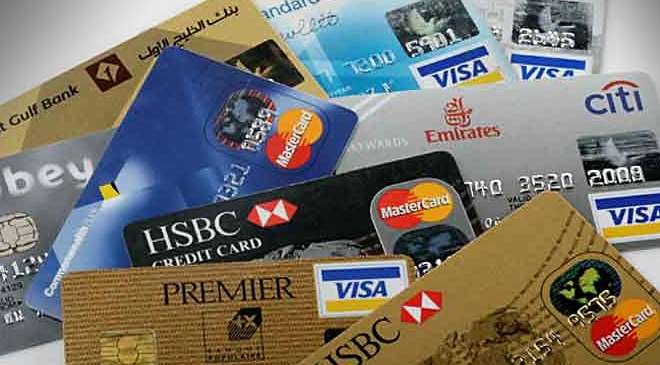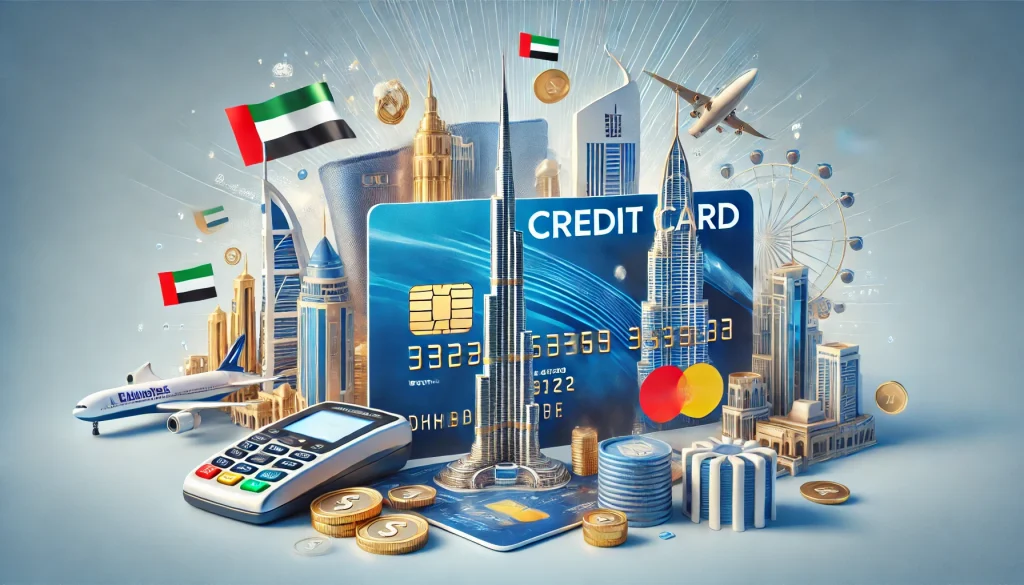In today’s fast-paced world, managing finances effectively is more important than ever. Credit cards are a valuable financial tool, offering flexibility and convenience in daily transactions. In the context of the United Arab Emirates (UAE), credit cards play a significant role in everyday life—whether it’s for making purchases, paying bills, or earning attractive rewards. This blog will explore what a credit card is, how it works, and what you need to know about credit cards in the UAE.
What Is a Credit Card?
A credit card is a type of financial tool issued by banks that allows you to make purchases without using cash. Essentially, it’s a form of short-term borrowing that gives you the ability to spend now and pay later. Unlike a debit card, which uses the money directly from your bank account, a credit card provides access to a line of credit that you can pay off over time or at the end of the billing cycle.
Credit cards come with a credit limit, which is the maximum amount you can spend using the card. This limit is set by the bank based on your income and credit history. You are required to pay back at least a minimum amount every month, with interest charged on the remaining balance if not paid in full.
How Credit Cards Work in the UAE
In the UAE, credit cards are issued by various banks and financial institutions, such as Emirates NBD, Mashreq Bank, Abu Dhabi Commercial Bank (ADCB), and more. Each bank offers multiple types of credit cards designed for different financial needs, ranging from basic cards to premium ones that provide exclusive privileges.
The key features of a credit card in the UAE include:
- Interest-Free Period: Most credit cards come with an interest-free grace period, usually around 45-55 days. If you clear your outstanding balance within this period, you won’t incur interest charges.
- Rewards Programs: UAE credit cards often come with reward programs that offer cashback, loyalty points, or air miles. These incentives are perfect for those who use credit cards regularly for groceries, utility payments, or travel bookings.
- Fees and Interest Rates: Annual fees and interest rates can vary significantly between different cards. Premium cards that offer higher benefits may come with higher fees. Similarly, the interest rate can range from 2.5% to 3.5% per month, depending on the issuer.
- Balance Transfers: Some banks in the UAE offer balance transfer features, allowing you to move outstanding amounts from one credit card to another, often with lower interest rates or promotional zero-interest periods.
Benefits of Using Credit Cards in the UAE
Credit cards in the UAE provide several benefits to users. Some of the main advantages include:
- Convenience: Credit cards make it easy to make purchases without carrying cash. Many cards can also be linked to mobile payment platforms such as Apple Pay, Google Pay, or Samsung Pay, further enhancing convenience.
- Emergency Access to Funds: Credit cards are a useful fallback in case of emergencies, where immediate access to cash might be challenging.
- Reward Programs: Credit cards in the UAE often come with attractive rewards—like cashback on utility bills, discounts on dining, travel perks, and air miles that can be redeemed for flight tickets.
- Building Credit History: A credit card helps you build a credit history, which is vital for future financial needs such as applying for a personal loan, car loan, or mortgage. Responsible use of your credit card will ensure a good credit score, which increases the likelihood of loan approval.
Common Types of Credit Cards in the UAE
Credit cards come in various categories, each catering to different needs. Here are some common types of credit cards offered in the UAE:
- Cashback Credit Cards: These cards reward you with cashback on every purchase you make. It’s a popular choice for those who want to get a portion of their spending back in the form of savings.
- Air Miles Credit Cards: If you’re a frequent traveler, air miles credit cards are ideal for you. They accumulate miles that can be redeemed for flights, upgrades, or hotel bookings.
- Premium Credit Cards: These cards come with higher credit limits and exclusive privileges like airport lounge access, concierge services, and travel insurance. They typically carry higher annual fees but are tailored for those seeking a luxurious experience.
- Islamic Credit Cards: These cards comply with Sharia law by avoiding interest-based transactions. Instead, they charge a monthly service fee and offer similar rewards and features as conventional credit cards.
How to Choose the Right Credit Card in the UAE
With many options available, choosing the right credit card depends on your needs and lifestyle. Here are a few tips to help you decide:
- Understand Your Spending Habits: If you spend a lot on groceries and utilities, a cashback credit card may be ideal. If you love traveling, an air miles card might provide you with the best value.
- Check for Interest Rates and Fees: Pay attention to the annual fees, interest rates, and late payment charges. These costs can add up if you don’t pay your balance in full every month.
- Review the Rewards and Offers: Many banks in the UAE partner with retail outlets, airlines, and restaurants to offer discounts and special promotions. Look for a credit card that offers rewards in line with your spending preferences.
Using Credit Cards Responsibly
While credit cards offer a range of benefits, it is crucial to use them responsibly to avoid falling into debt. Here are some guidelines for using a credit card wisely:
- Pay the Full Amount on Time: To avoid paying high interest, make sure to clear the outstanding balance before the due date.
- Track Your Spending: Keep track of your spending to ensure you do not exceed your budget.
- Avoid Minimum Payments: Paying only the minimum amount due can lead to accumulating a high balance, and interest will compound on your debt.
Things Nepalese in UAE Should Take Care of While Applying for a Credit Card
For Nepalese residents in the UAE, it is essential to consider a few key factors before applying for a credit card. Firstly, make sure to have a stable income that meets the minimum eligibility criteria set by the bank. Most banks require proof of employment and a salary certificate, so ensure that all your documentation is complete and up-to-date. Additionally, compare interest rates, fees, and benefits across different cards to choose the one that best suits your needs. Be mindful of the repayment terms and avoid overspending, as high-interest charges can accumulate quickly if the balance is not paid on time. Building a good credit history by using the card responsibly will also improve your chances of getting approved for other financial products in the future.
Conclusion
Credit cards in the UAE are a popular financial tool that provides convenience, rewards, and access to credit. Whether you’re a frequent traveler, a savvy shopper, or someone looking to manage emergency funds, there’s a credit card that’s right for you. However, it’s important to understand the terms, choose the right card for your lifestyle, and use it responsibly to make the most out of it without falling into debt.
If you’re considering getting a credit card, start by assessing your financial needs and exploring the options available from banks in the UAE. With the right approach, a credit card can be a powerful tool to enhance your financial flexibility and benefit from attractive perks.


